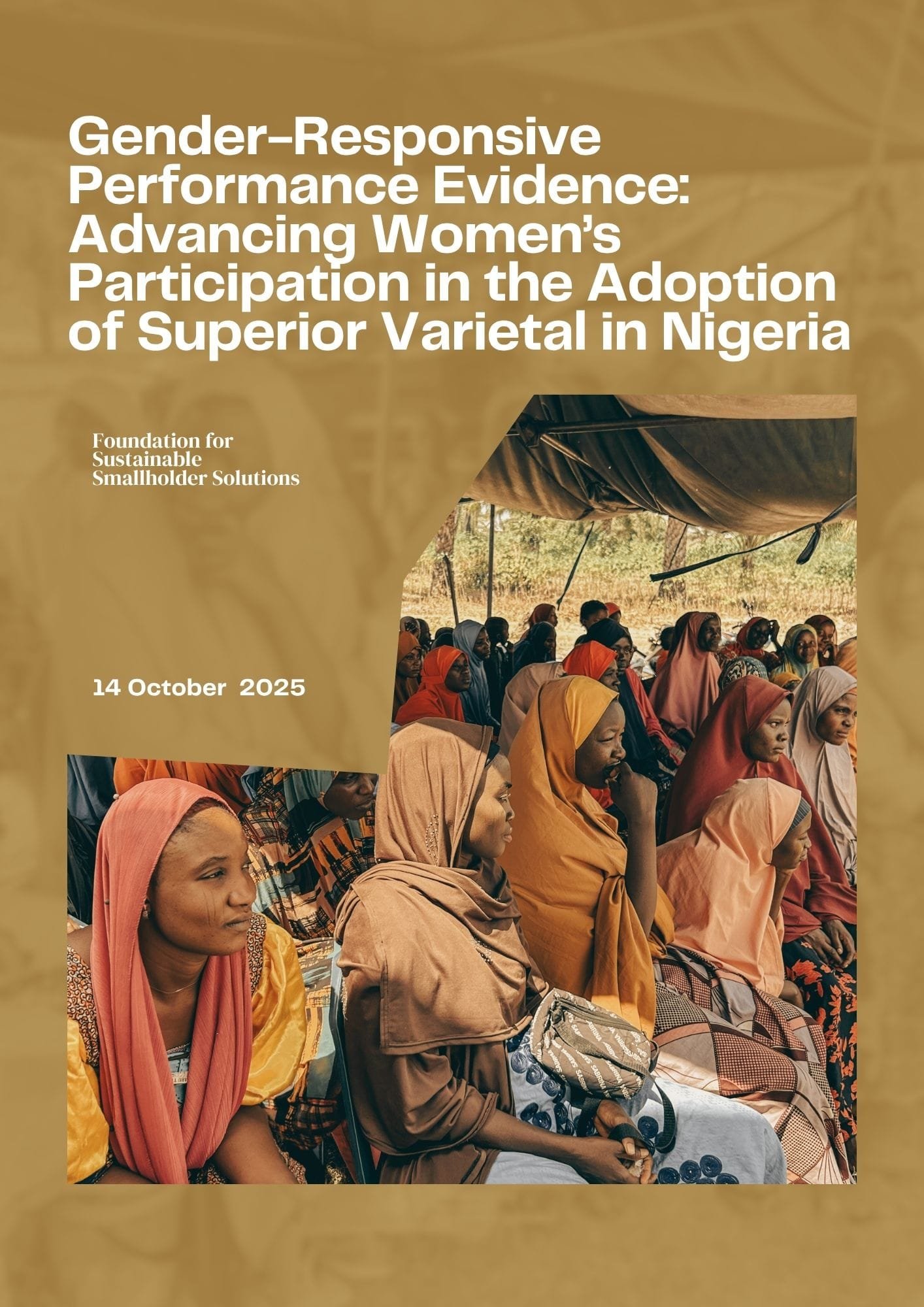Gender Analysis; Women Farmers; Varietal Adoption; Agricultural Innovation; Nigeria.


Year of publication:
Oct, 2025
Place of publication:
Pages:
11
Author:
Publisher:
Foundation for Sustainable Smallholder Solutions
Product type:
Report
Language:
English
ISBN/ISSN:
NA
To cite or share: https://fsssolutions.org/?p=80683
The Foundation for Sustainable Smallholder Solutions (FSSS) conducted a gender-focused analysis across ten states in Northern Nigeria – Kano, Benue, Nasarawa, Niger, Taraba, Kebbi, Jigawa, Bauchi, Kaduna, and the Federal Capital Territory (Abuja) – to better understand the barriers and opportunities influencing women’s participation in the adoption of improved varieties of rice, maize, and cowpea.
Drawing insights from focus group discussions and structured surveys involving 30 smallholder farmer groups, the study examined how gender differences shape access to information, resources, and decision-making in agricultural innovation.
Findings reveal persistent gender gaps that significantly affect the design and effectiveness of on-farm trials. Although women constituted 64% of the study population and contribute meaningfully to agricultural production, they remain marginalised in key areas of decision-making and access to inputs. Only 22% reported having even moderate influence in household or farming decisions, while 67% faced labour shortages compared to men, and 44% used less fertiliser due to financial and cultural constraints. Women were also found to be largely excluded from seed trials and extension services.
The analysis highlights that women’s priorities in crop variety selection differ notably from those of men. Women tend to value traits such as early maturity, good taste, and labour efficiency — reflecting their dual roles in production and household management. However, limited mobility, time constraints, and social norms continue to restrict their participation in formal dissemination platforms. Instead, women rely heavily on peer-to-peer networks and community field days as their primary sources of information.
To close these gender gaps, the report recommends a set of actionable measures:
Together, these strategies aim to ensure that FSSS’s variety testing platform not only advances agricultural innovation but also empowers women farmers as equal participants and beneficiaries in the process.
Gender Analysis; Women Farmers; Varietal Adoption; Agricultural Innovation; Nigeria.